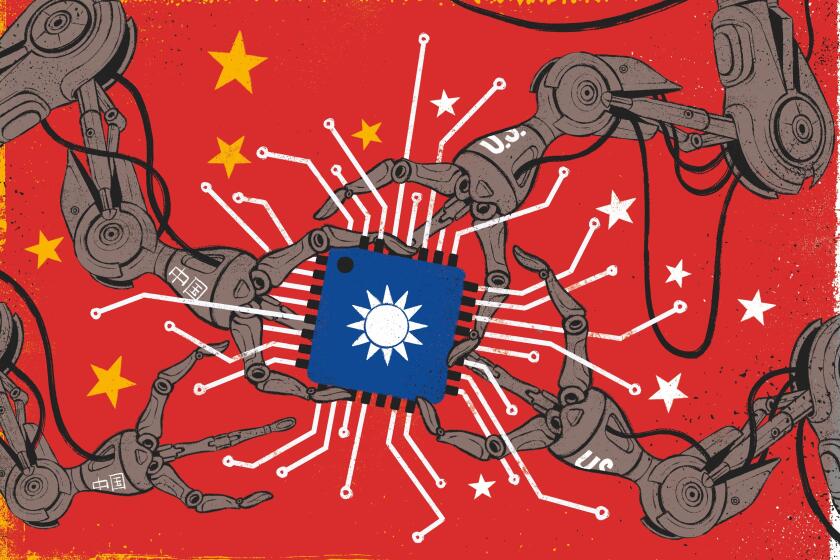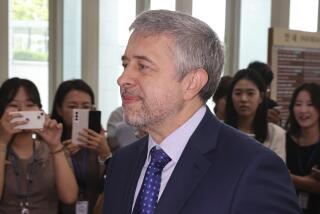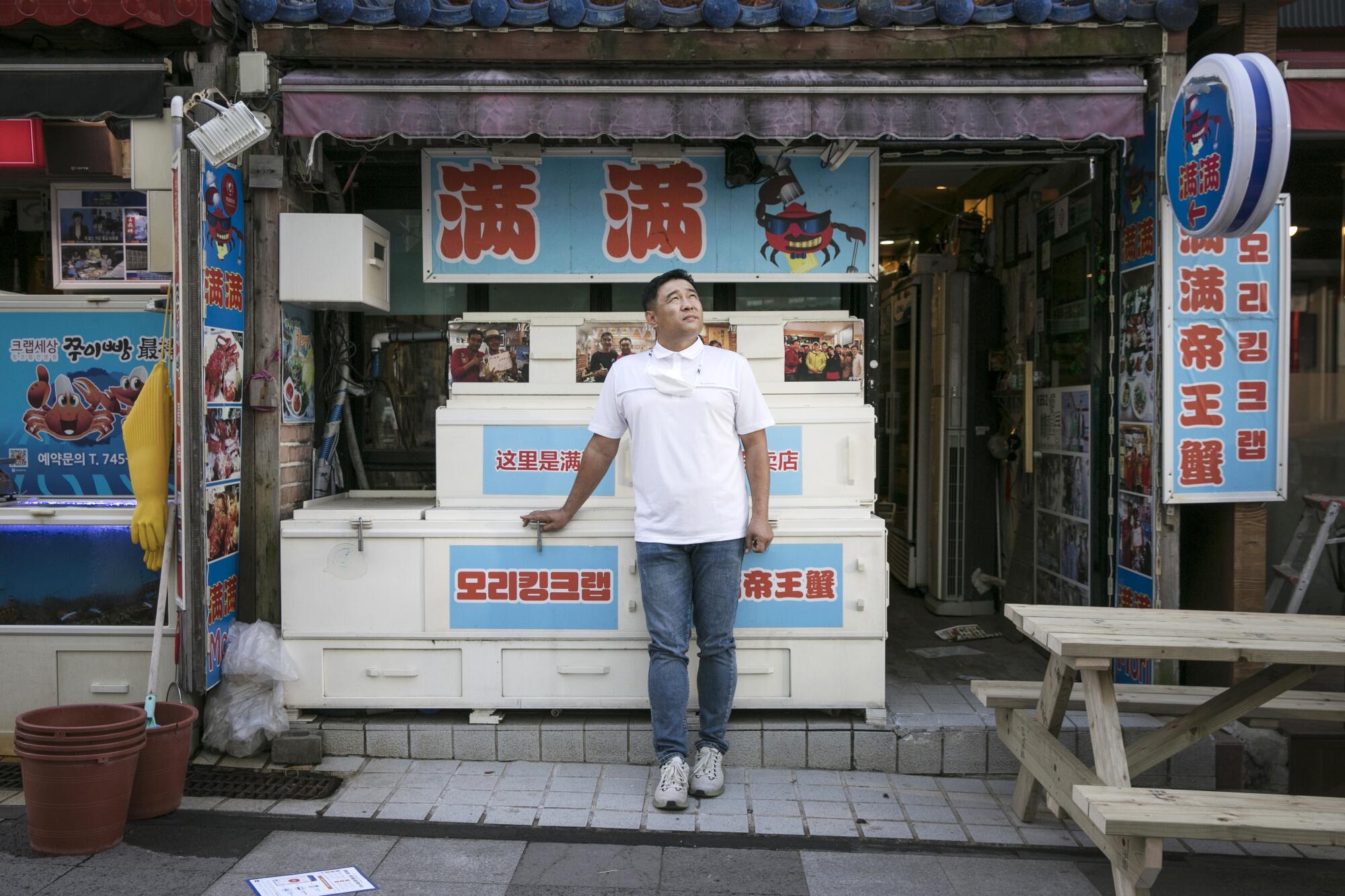
In U.S.-China dispute over missile defense system, Beijing punishes South Korea by restricting tourism and holding trade hostage.
- Share via
JEJU ISLAND, South Korea — A few years ago, Kim Kyoung-chul’s once-thriving crab restaurant on a balmy island off the southern coast of South Korea unwittingly became a casualty of escalating tensions between global powers.
Hundreds of miles and a sea crossing away from his touristy street lined with bling, fashion and cardboard cutouts of K-pop stars, South Korea was installing an American missile interceptor over China’s objections that it threatened its national security. The interceptor’s radar, China’s Foreign Minister Wang Yi said at the time in 2016, “goes far beyond the defense need of the Korean Peninsula. It will reach deep into the hinterland of Asia, which will ... directly damage China’s strategic security interests.”
Kim had little idea how deeply the geopolitical dispute would impact his small business. Beijing’s harsh and swift economic retribution against South Korea — the repercussions are felt to this day — took a toll on economic matters including K-pop groups, exporters and a department store conglomerate. Chinese tourism to South Korea evaporated overnight.
Nowhere was that impact felt more keenly than on Jeju Island, and particularly on Kim’s street, which had for years been popular with Chinese visitors but was feeling the wrath of an emboldened China that under Xi Jinping was determined to realign the world order.
“It all came crashing down. There wasn’t a soul on the street,” said Kim, adding that his restaurant had barely recovered in late 2019, before the coronavirus hit. “China can do that, just not send its people.”
South Korea’s Foreign Ministry declined to comment on the missile interceptor system. Seoul has been careful not to anger China for fear of triggering fresh economic retaliation, said Chung Jae-ho, professor of international relations and director of the Program on U.S.-China Relations at Seoul National University.
“There’s a sort of Sinophobia where they worry in advance, without knowing what is going to come from China,” he said. “They define Korea’s national interest mainly in economic terms and think they shouldn’t do something that would tick off China’s tendencies to use economic sanctions. They won’t even try to push back.”
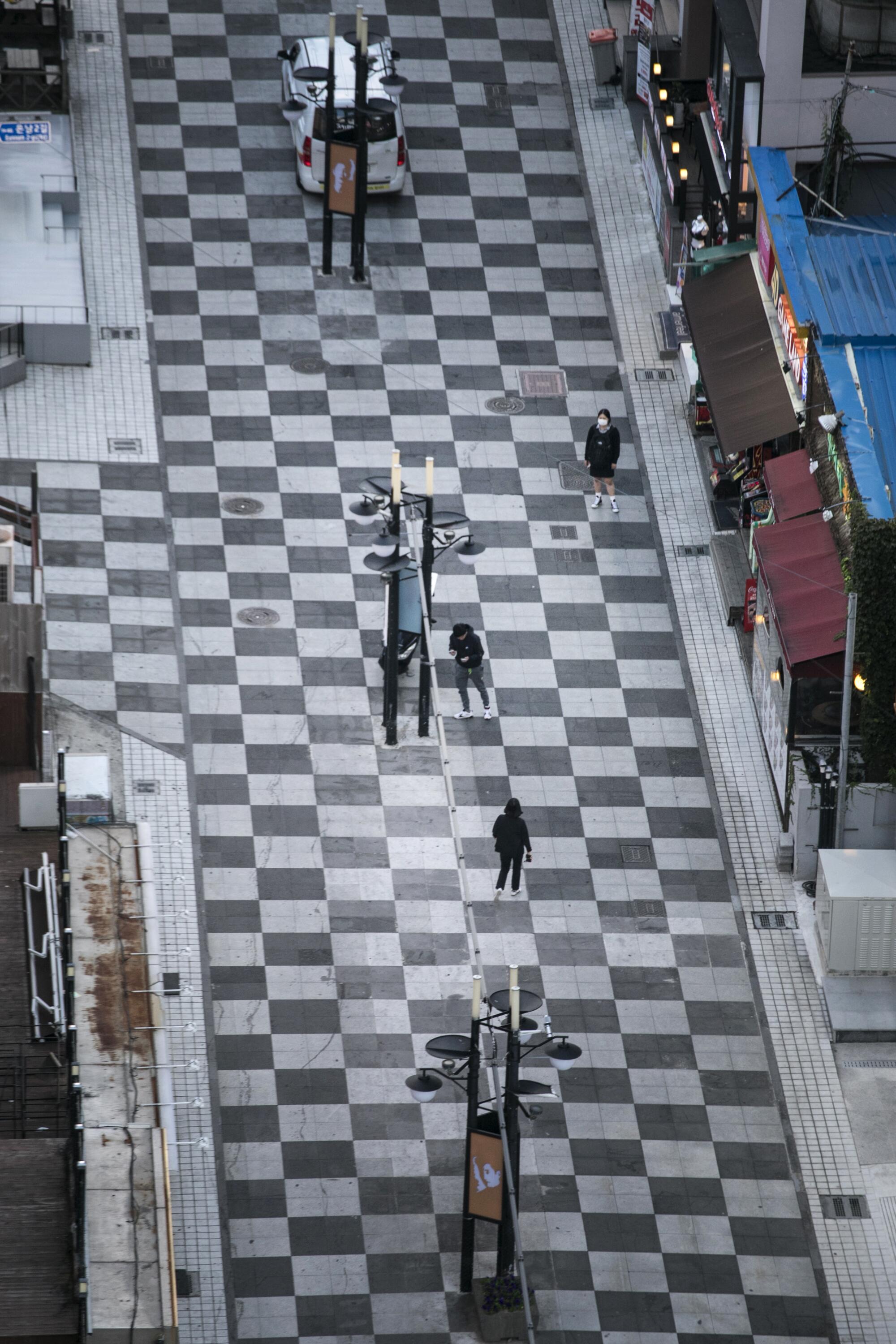
China has increasingly resorted to wielding its economic heft as a weapon, holding its tourists and trade hostage in disputes with neighboring nations. It has forced new calculations in diplomacy and investment. In the wake of the missile dispute, corporations in South Korea including retailer Lotte, the country’s fifth-largest conglomerate, and carmaker Hyundai, the second-largest, faced steep declines in sales and stringent regulations in China that cost them hundreds of millions of dollars.
On the other end of the spectrum were the likes of Kim, ordinary South Koreans swept into the fray. Never spelled out in official policy but immediately felt on the street, China’s wrath passed like a fever dream, leaving livelihoods in tatters.
::
A couple of hundred miles and a strait away from Kim’s restaurant, the state-of-the-art missile interceptor known as the Terminal High Altitude Area Defense, or THAAD, sits on a former golf course nestled in the mountains.
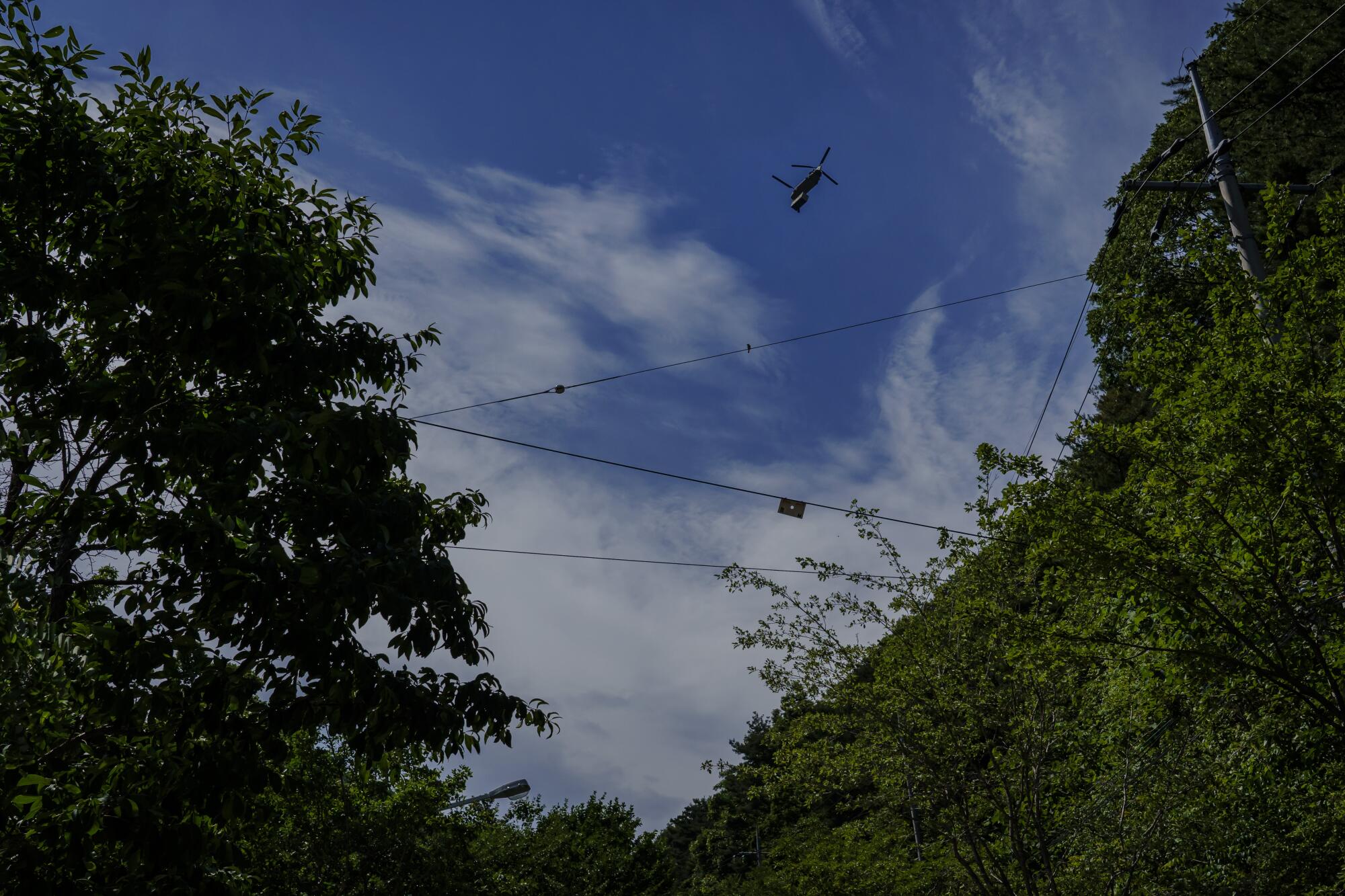
The system, which the U.S. and South Korea say is necessary to defend the peninsula from North Korea’s nuclear threat, has for many South Koreans come to be synonymous with the country’s unenviable place in the U.S.-China rivalry. Seoul must keep Washington — with its 28,500 U.S. soldiers stationed in the country — as a close ally while enduring the economic cost China can exact on its export-dependent economy.
China has protested the deployment of the missile defense system, asserting that its powerful radar can reach far beyond the Korean peninsula and spy on mainland China. Beijing’s resolve against THAAD cost South Korea at least $7.5 billion in economic losses and remains a specter hanging over relations between the countries. The system has become a shorthand for anxieties over what other potential incidents may infuriate China.
When Chinese K-pop fans recently expressed outrage at a BTS band member’s comments about U.S. contributions in the Korean War, headlines in South Korea worried it would bring about “a second THAAD incident.” When the U.S. began pressuring Seoul to steer clear of the Chinese tech giant Huawei, South Korean columns and editorials conjured “a second THAAD.” When President Trump invited South Korea to an expanded meeting of the world’s most powerful democratic nations, which did not include China, South Korean media fretted about the possibility of “a second THAAD.”
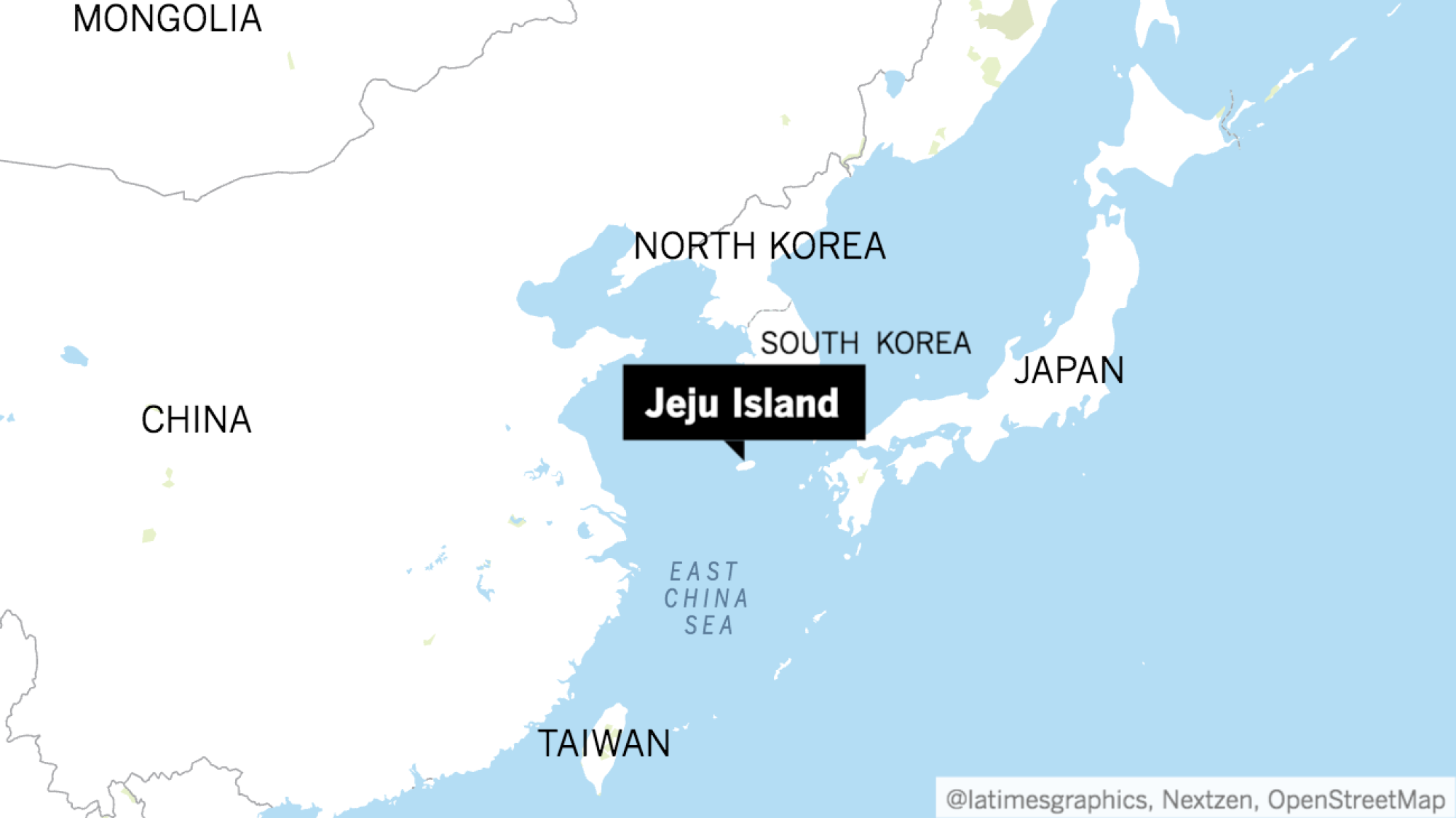
“THAAD is a recent example of what China’s willing to do to punish countries like South Korea,” said Jung H. Pak, a former CIA analyst and senior fellow at the Brookings Institution. “The concern ... is how much does Beijing perceive that as a success? Does it think South Korea is not going to lash out, it’s not going to do anything to hurt Beijing’s interest? Perception matters as much.”
Pak said China views South Korea as a weak link in the United States’ presence in the region, and knows the economy can serve as a pressure point. This tension has driven South Korean companies to rethink their involvement in China and diversify — but smaller businesses like Kim’s crab restaurant cannot so easily weather the consequences.
Relations between the two nations were were officially nonexistent for decades since China backed North Korea in the Korean War. But after diplomatic ties were established in 1992, China overtook the U.S. as the country’s largest trading partner in 2004, always with a substantial surplus in South Korea’s favor, making up a large portion of its export-driven economy. Trade between China and South Korea grew to $243 billion in 2019, compared with $135 billion between South Korea and the U.S.
“The economic relationship is so steeped in a tacit acceptance,” Pak said. “You feel it, and as a store owner, how do you punch back? Do you just light up your cigarette and say, ‘That’s what it is’?”
::
Kim didn’t have his sights set on China or Chinese tourists until they began showing up at his doorstep.
When he started his restaurant selling giant, hairy king crabs a decade ago, most of his clientele was Korean. Then in 2011, a Chinese multilevel marketing company sent more than 10,000 of its employees on a tour of Jeju Island. Local officials, thrilled with the influx, renamed Kim’s street after the corporation. The street, previously known as Rodeo Drive after the iconic one in Beverly Hills, instead was christened Baojian Street, after the cosmetics and health product seller.
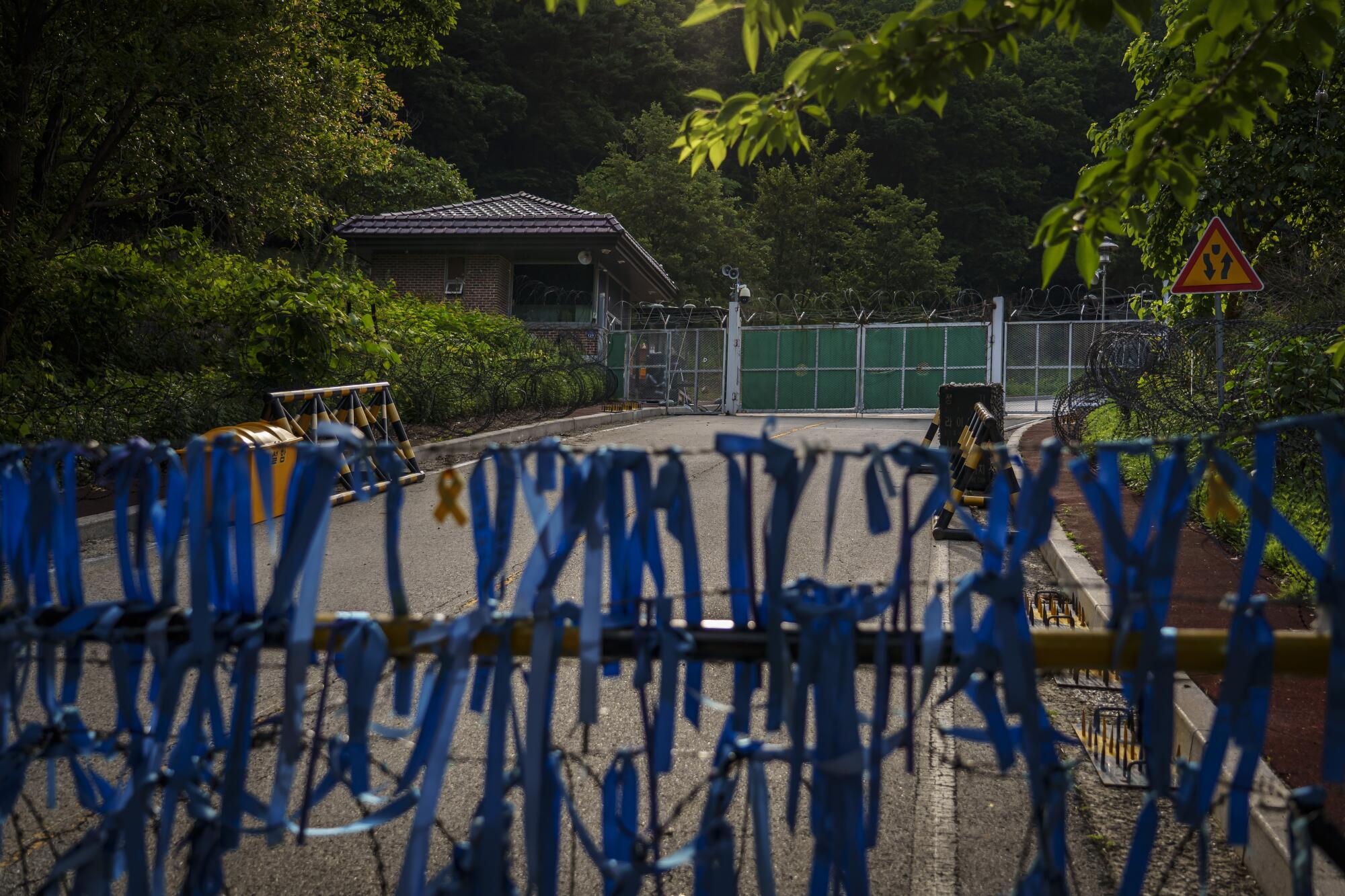
They take it out on South Korea because they can’t stand up to the U.S.
— Kim Kyoung-chul
The street’s popularity with the Chinese became a boon for Kim and other merchants. Chinese language signage cropped up along the four-block stretch. Shops hired Chinese-speaking employees, accepted Chinese yuan and spruced up their storefronts in red and gold and the odd panda statue to cater to their new customers.
In short order, the vast majority of his patrons were Chinese. He developed a loyal base of regulars who came back every year, some of whom loved his restaurant so much they proposed opening branches in China. He flew to Shanghai and Guangzhou to meet with potential partners.
Then it all stopped cold.
Chinese travel to the island fell by nearly 90% in the first half of 2017. For nearly a year, his restaurant sat empty. Kim, who’d previously paid little attention to geopolitics, found himself debating what the South Korean government should do with his Chinese employees and fellow merchants.
“They take it out on South Korea because they can’t stand up to the U.S.,” he said. In holding the South Korean economy hostage, he said, “they acted like street thugs.”
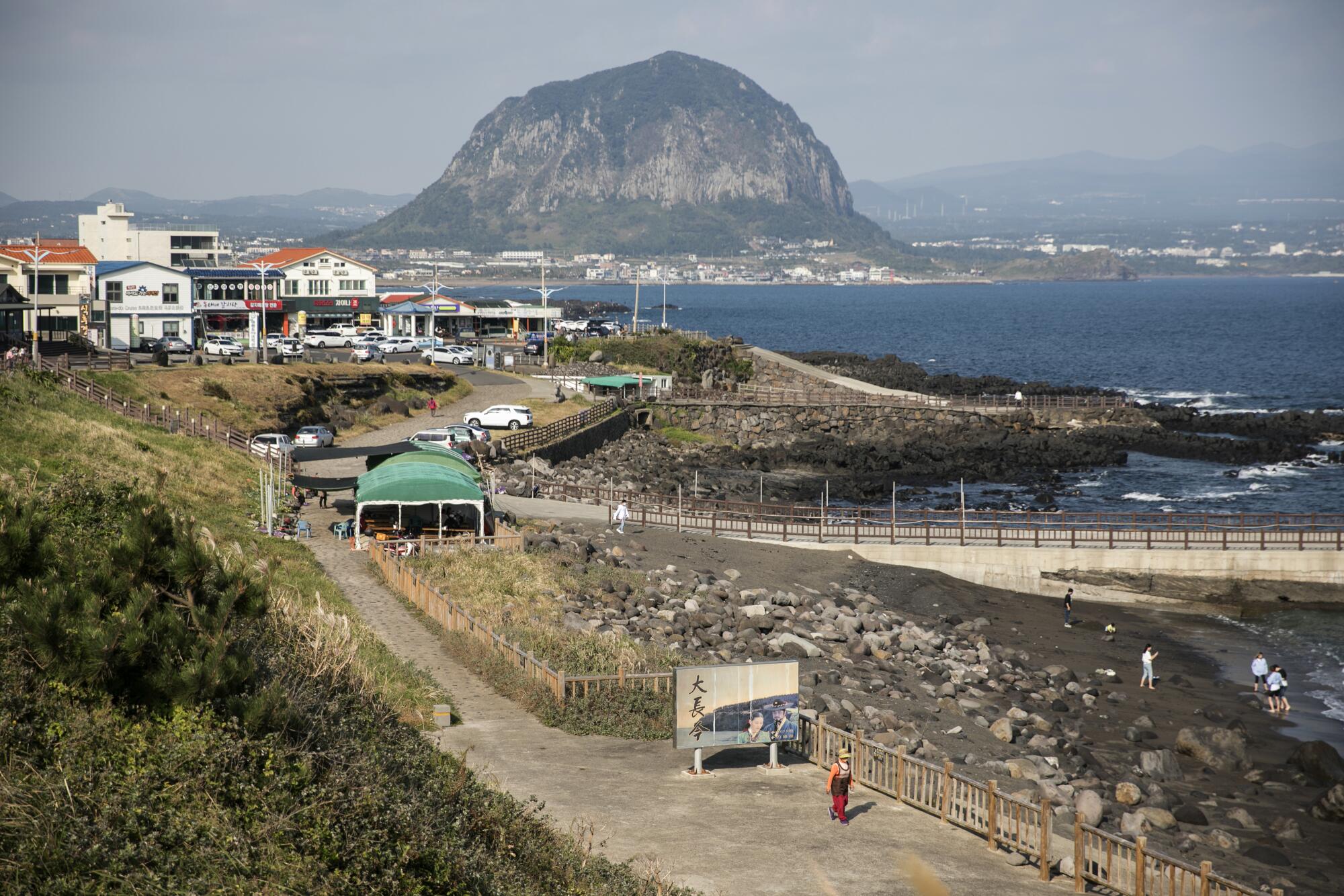
::
Around the same time, in Beijing, Lee Hye-ran had been gearing up to launch an e-commerce business selling South Korean products.
A social media influencer who had built up a large following in China, Lee had secured more than $4 million in investment from a South Korean pharmaceuticals company to market and sell South Korean cosmetics. The venture was targeted at capitalizing on the success of K-pop and Korean dramas that were popular in China. But before it moved too far along, the dispute over THAAD arose.
“All of a sudden, no South Korean products were coming into China at all. None of it was getting through customs,” said Lee, 33, who has since returned to South Korea and now runs an academy training other South Koreans wanting to become influencers in China.
She was careful never to mention politics or make provocative statements in her online broadcasts, wanting to avoid Chinese censors and maintain her fan base of hundreds of thousands of Chinese who regularly tuned in. She advised other influencers working with her to do the same — but that didn’t shelter her from the blow.
“I always said, I don’t really know what’s going on, and I’m not even interested,” she said. But Lee thought she could still engage with her followers and help South Korean companies expand into China. She said she remains optimistic, even though she believes Chinese perception of South Korean products and people was damaged by THAAD.
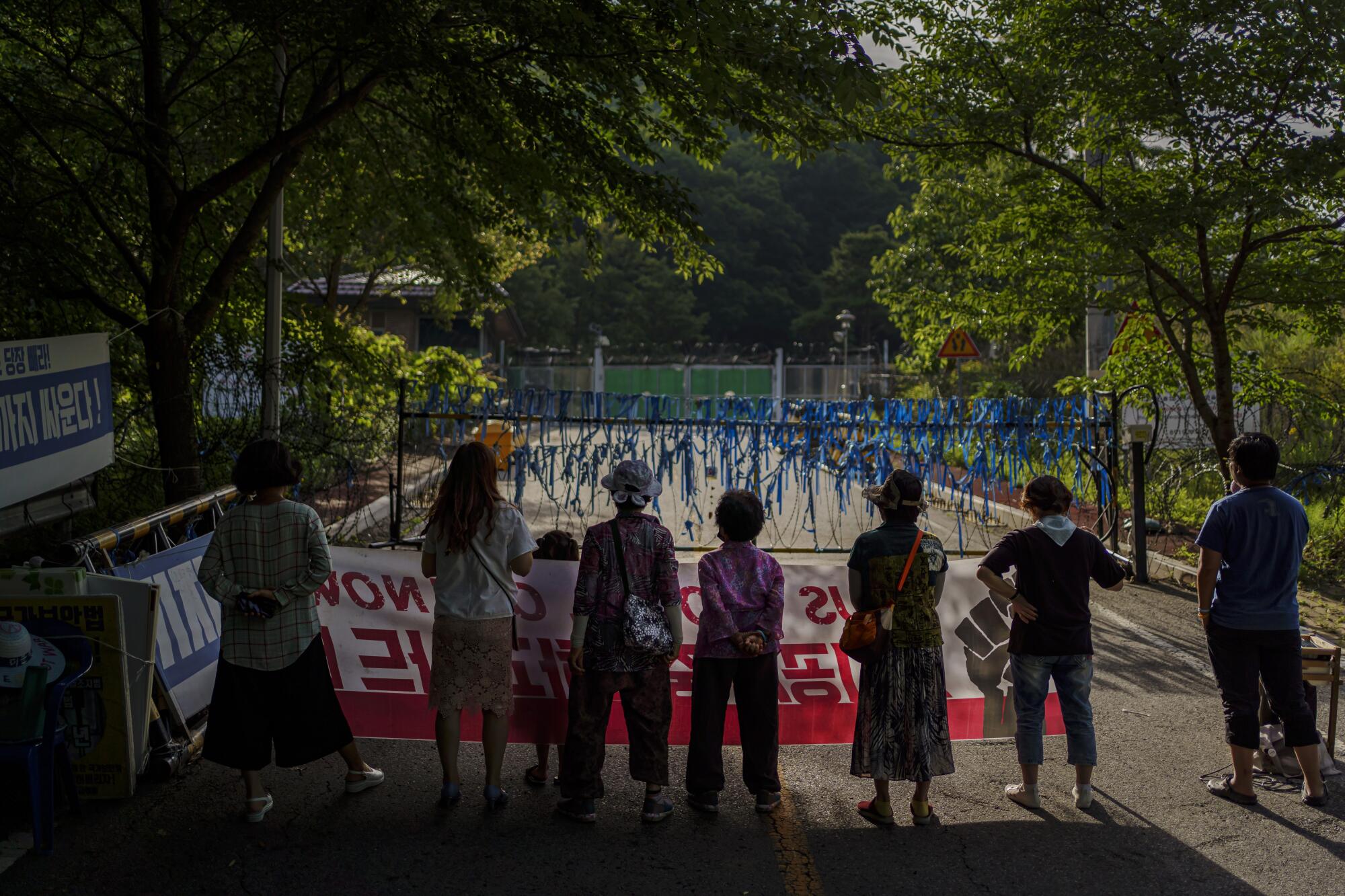
South Korean game developer Kang Hye-lee encountered a similar sudden fallout. Chinese investors in the company she worked for pulled their funding, and Kang’s paychecks stopped. Within a couple of months, the company with about 20 employees folded. Kang was laid off. Four years later, South Korean-made games remain largely shut out of China, with no new games being licensed for distribution in the country since 2017.
This year, when tens of thousands of games were removed from the Apple app store in China, Kang said she thought: “Here they go again.”
“They can really nitpick about all the conditions that need to be met. It’s ludicrous,” she said.
Shin Bong-sup, who was at the time South Korea’s consul general in Shenyang, in northeastern China, saw the will of the Chinese government play out in the most mundane of ways on South Korean companies doing business in the region: fire code and environmental regulations.
Lotte held a particular interest for Chinese retaliation. In a land swap deal with the South Korean government in 2016, it turned over the golf course that later became the THAAD site. Shoppers began boycotting and protesting at Lotte-run stores; local authorities put a stop to construction on a $2.6-billion development project Lotte had in Shenyang. The half-built site sits idle to this day. Smaller companies, Shin said, couldn’t survive having their businesses on hold indefinitely.
“There’s no mention of THAAD,” he said. “All of a sudden, it’s, does this alarm work? Is it right above the door?”
::
In late 2017, officials in Jeju asked residents to suggest new monikers to replace the Chinese name Baojian Street, which had become a bitter reminder of its tumultuous fortunes.
Among the entries was “THAAD Street.” It was ultimately rechristened Nuwemaru Street, reflecting local dialect, but the name hasn’t quite stuck. People seem to have trouble remembering or pronouncing it, merchants along the street said.
Perhaps Jeju should have anticipated the whims of Chinese nationalism. After all, Baojian chose to send its employees to Jeju after abruptly canceling a trip to Japan in 2010, when tensions flared up between Beijing and Tokyo after a clash near disputed islands in the East China Sea. At the time, the company reportedly cited “the dignity of the Chinese” in an announcement on its website.
We’re mothers, and this is a weapon of war.
— Im Soon-boon, a farmer and protester
The dispute over THAAD officially ended around the same time the street was renamed, when South Korea said that there would be no further buildup of the defense system battery and that the country would neither be integrated into a regional U.S. missile defense system nor enter a trilateral alliance with the U.S. and Japan.
But unease over the interceptor, which South Korea says is only “temporarily deployed” on its soil, remains. Twice this year, in the midst of the pandemic, residents in the village near the THAAD battery clashed with police while trying to block U.S. military vehicles.
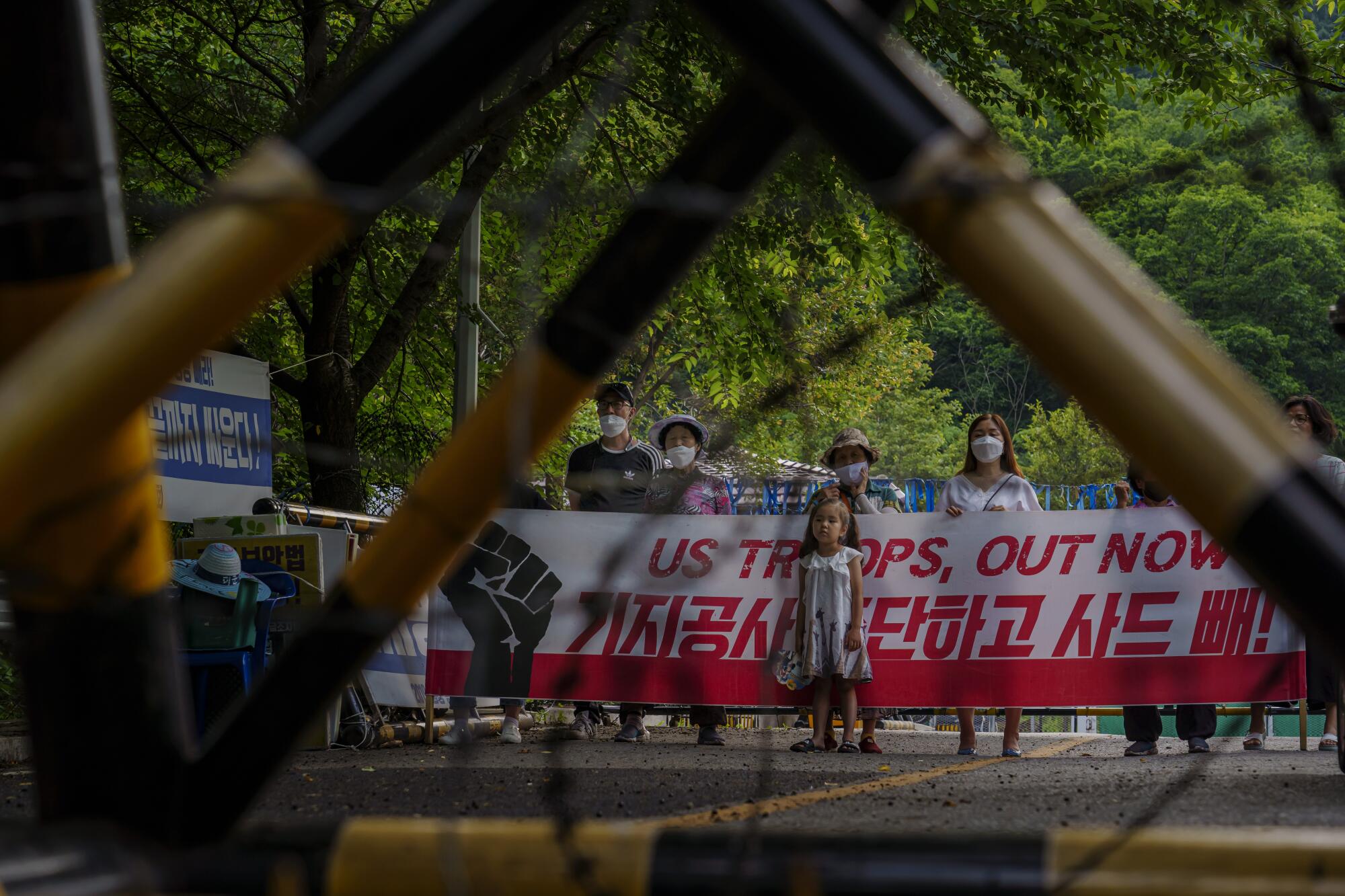
“We’re mothers, and this is a weapon of war,” said Im Soon-boon, 67, a 40-year resident who in between farming garlic and peppers has been taking shifts to keep watch on the base next door. “It’s about our children and our grandchildren.... If there’s a war, they’ll strike here first.”
Kang Hyun-wook, a Won Buddhist minister who has been waging daily protests alongside the villagers, said they were closely watching the rising tensions between the U.S. and China.
“The South Korean government is wary of what China thinks, not us down here,” he said. “If the U.S.-China conflict heats up, there will be less and less leeway for our government to make its own decisions.”
Chun Yung-woo, a retired career diplomat and who served as national security advisor to a previous South Korean president from 2010 to 2013, said the missile dispute may have ultimately been a timely wake-up call for South Koreans enamored with the potential economic prosperity offered by China’s massive market.
“THAAD was an eye-opening event that made us see China for what it is, not the benign version we’d wanted to see,” he said. “The naive and romantic views we previously held, China shattered those illusions for us.”
Kim can attest to that. He doesn’t know what the future holds for his crab joint but said he was encouraged at the increasing number of Vietnamese tourists to Jeju Island, lessening its dependence on China. He said he believed that China, unable or unwilling to directly confront the U.S., had taken it out instead on a nation below its weight.
“China did this to us because they look down at us,” he said. “We found out, blind faith is dangerous.”
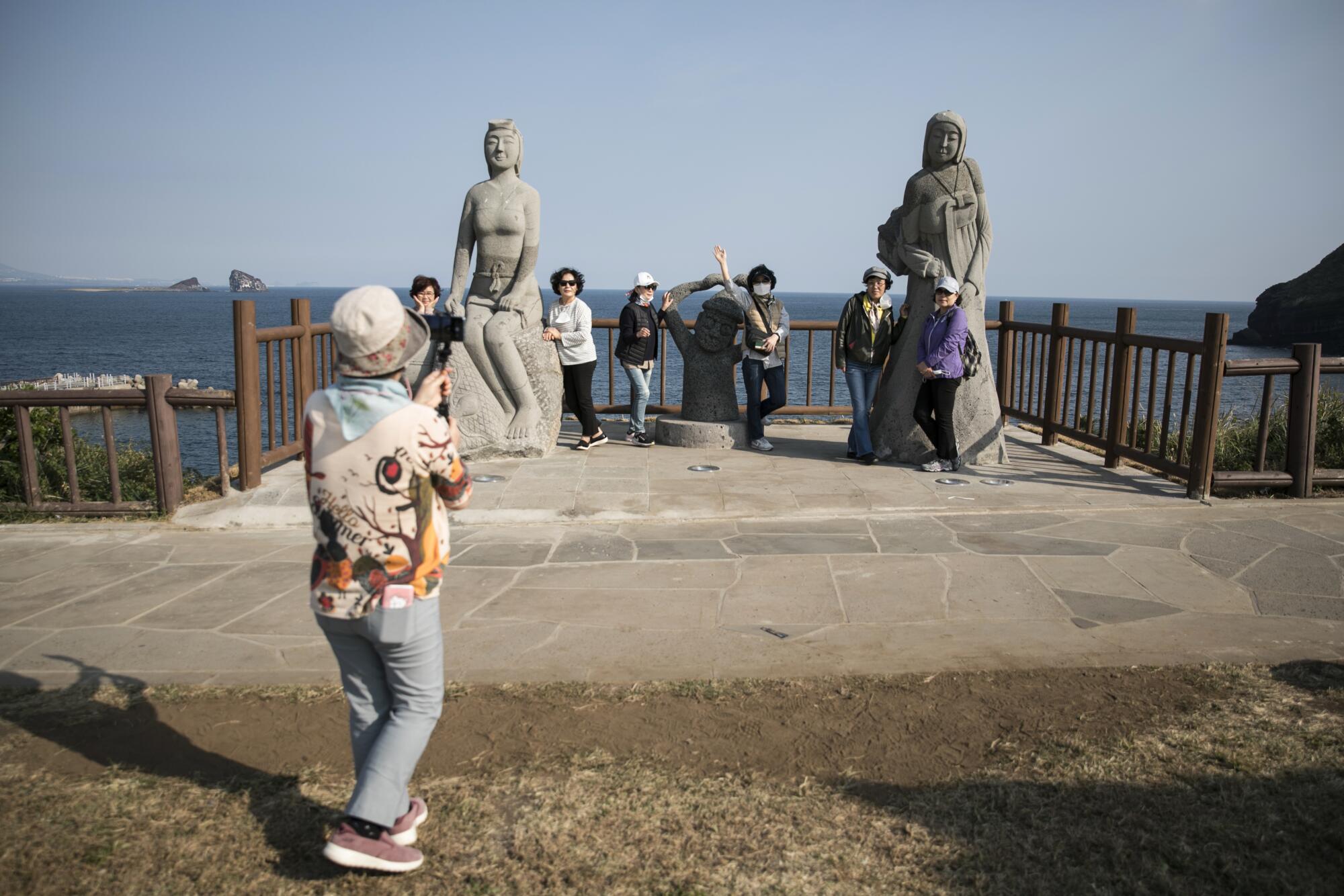
This is the fifth in a series of occasional articles about the effect China’s global power is having on nations and people’s lives.
More to Read
Sign up for Essential California
The most important California stories and recommendations in your inbox every morning.
You may occasionally receive promotional content from the Los Angeles Times.

